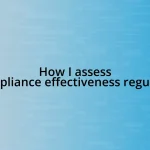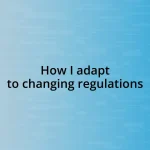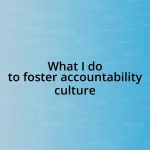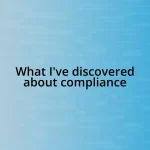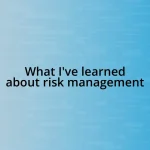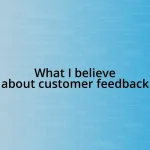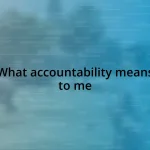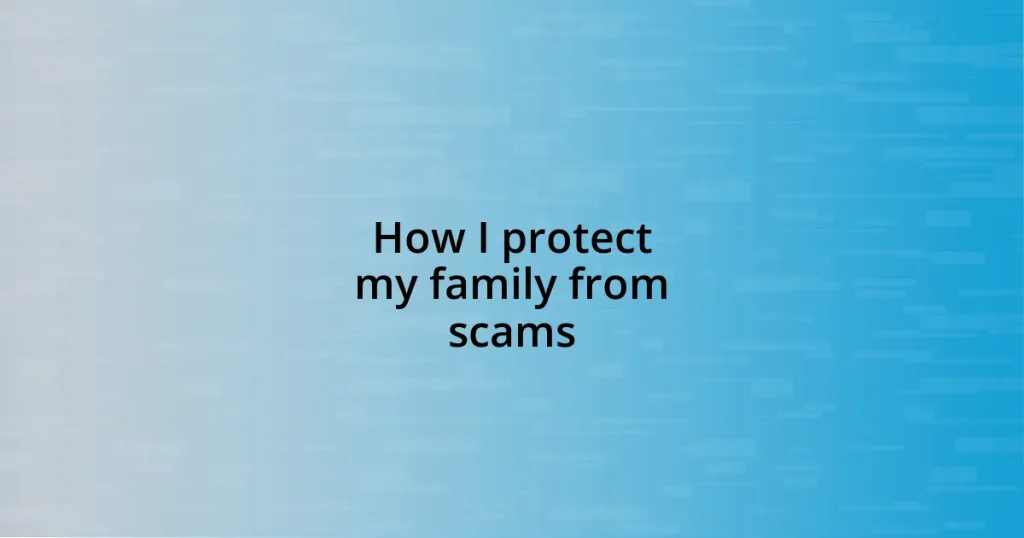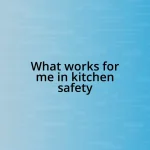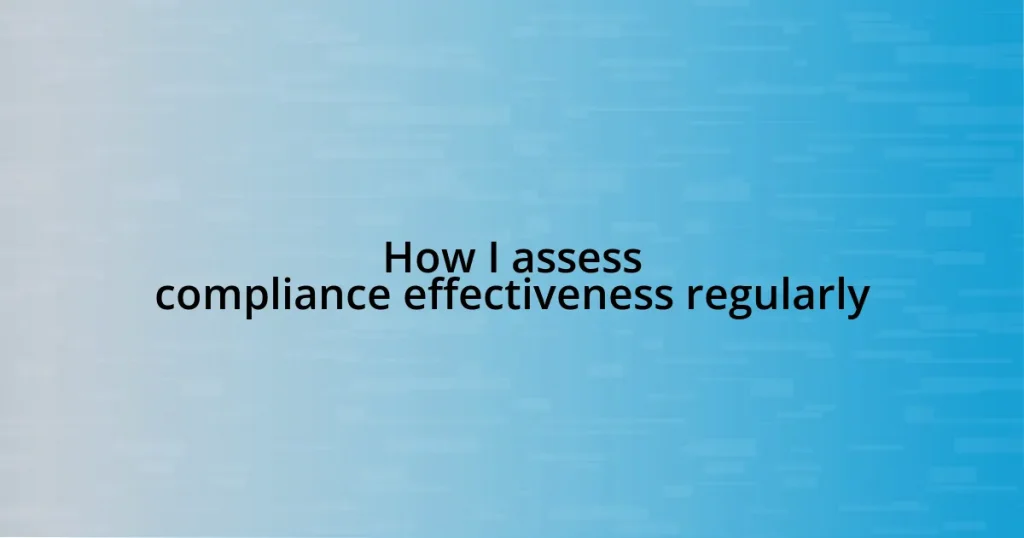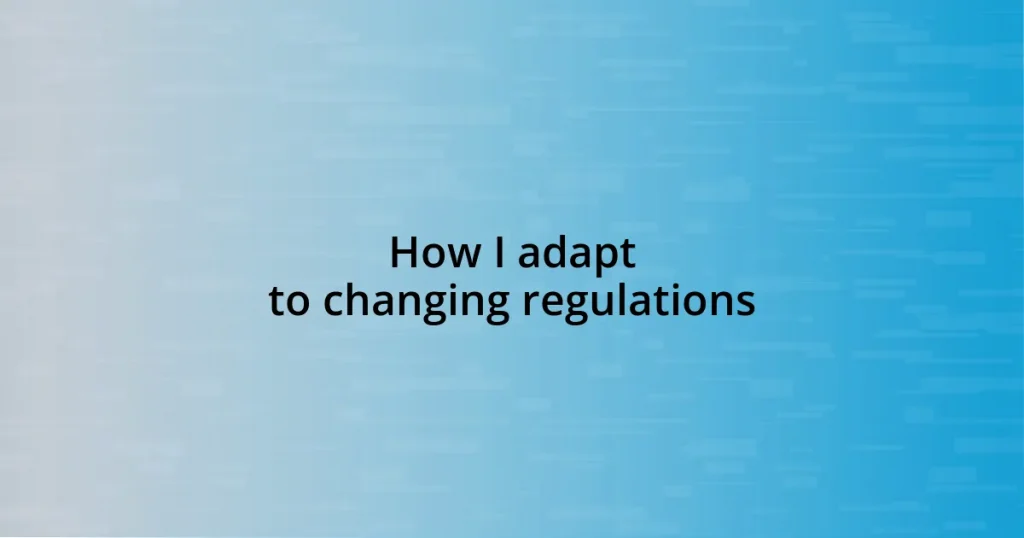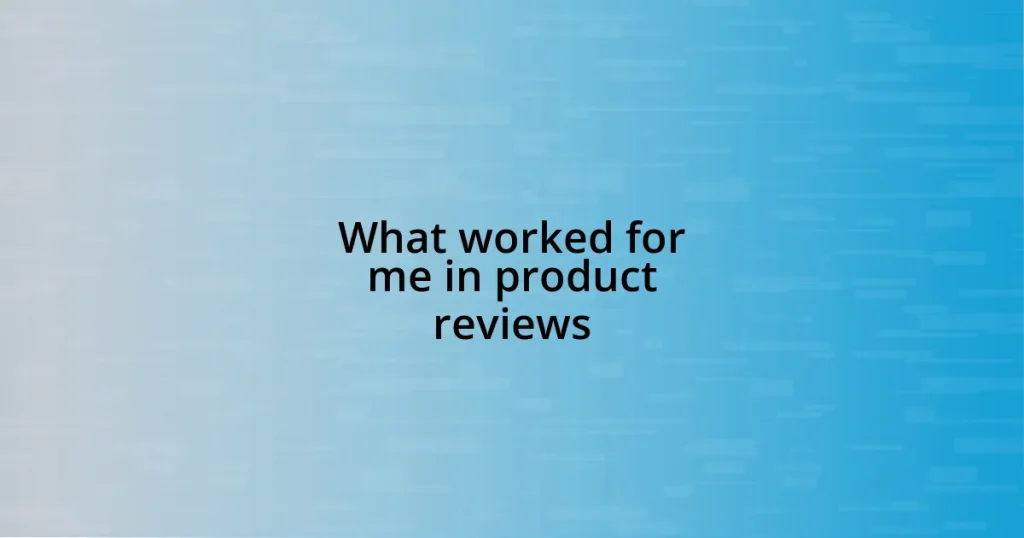Key takeaways:
- Understanding common scams involves recognizing tactics like urgency, unsolicited contact, and vague details.
- Educating family members through discussions, role-playing, and sharing personal experiences enhances scam awareness.
- Utilizing technology, such as security software and alert systems, helps in protecting against potential scams.
- Reporting scams to relevant authorities contributes to community awareness and aids in combatting fraud effectively.
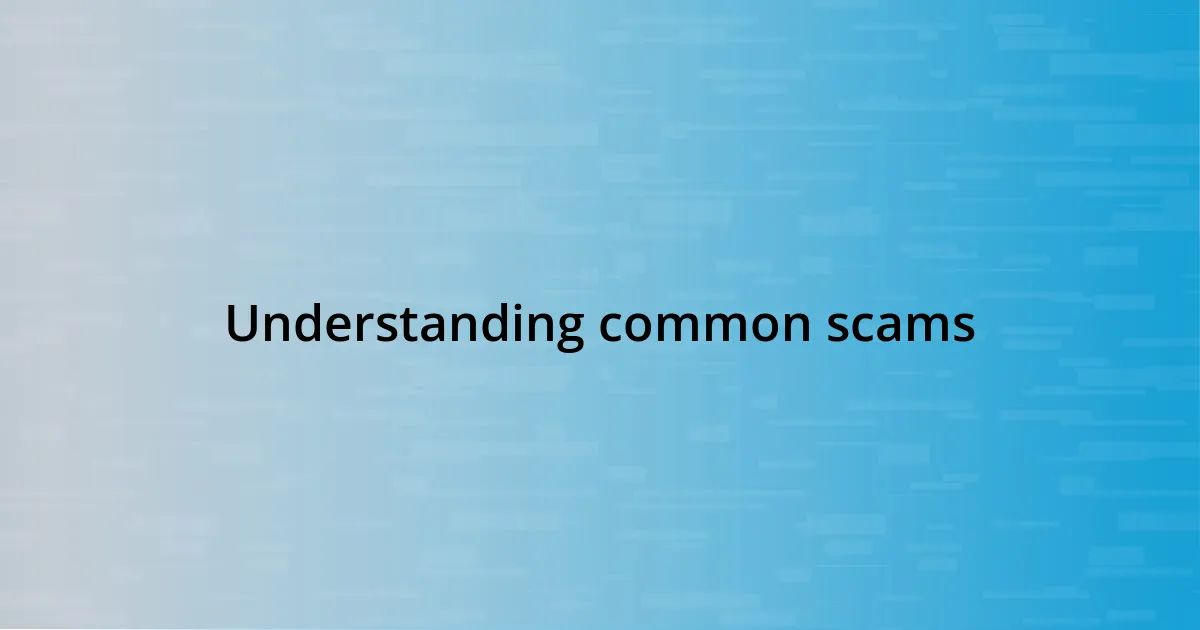
Understanding common scams
Understanding common scams requires us to look closely at the tactics scammers use. For instance, I remember getting a call that claimed I had won a large sum of money. At first, it felt exciting, but a sense of unease hit me when they asked for my personal information. It’s so easy to get swept up in the thrill, isn’t it?
Another frequent scam I’ve encountered is phishing emails. These messages often appeared to come from reputable organizations, urging immediate action or account verification. I once clicked on a link in a seemingly harmless email from a bank I use—only to realize it was a trap. It made me question how many people must fall for this tactic daily, especially those who aren’t tech-savvy.
Then there are the loved ones scams, where fraudsters pose as a friend or family member in distress, asking for money. I can’t help but feel a mix of anger and sadness over these deception methods. Can you imagine how devastated someone must feel after being tricked into helping someone they genuinely care about? Recognizing these scams is crucial for protecting not just ourselves, but our families too.
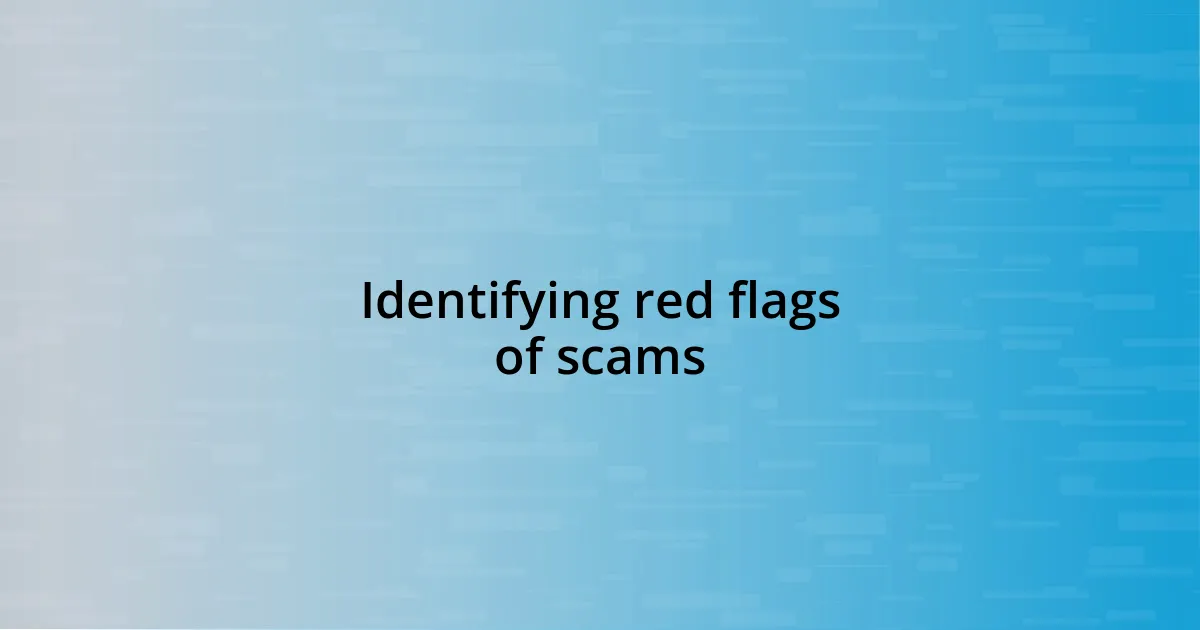
Identifying red flags of scams
Identifying the red flags of scams can be a game-changer in protecting our loved ones. One of the first signs to watch for is urgency. Scammers often create a false sense of emergency, urging you to act quickly. I recall a time when I received an unexpected message claiming my account was compromised and I needed to verify my identity immediately. It felt unsettling, and I soon realized that legitimate companies would never pressure you like that.
Another red flag is unsolicited contact. When someone you don’t know reaches out with offers that seem too good to be true, be cautious. Once, a stranger messaged me on social media claiming they were a representative from a lottery I never entered, promising cash prizes. The excitement quickly turned to skepticism when they asked for payment to release the supposed winnings. Trust your instincts—if something feels off, it probably is.
Lastly, always be wary of vague details when it comes to offers or requests. Fraudsters often avoid specifics to confuse you. I remember a charity that reached out, but when I asked for more information about their mission, they grew evasive. Genuine organizations will always provide clear and detailed information. The clearer the details, the better your peace of mind.
| Red Flag | Description |
|---|---|
| Urgency | Scammers create a false sense of emergency, pressuring you to act quickly. |
| Unsolicited Contact | Receiving unexpected messages or calls about offers that seem too good to be true. |
| Vague Details | Fraudsters provide unclear information to confuse the target. |
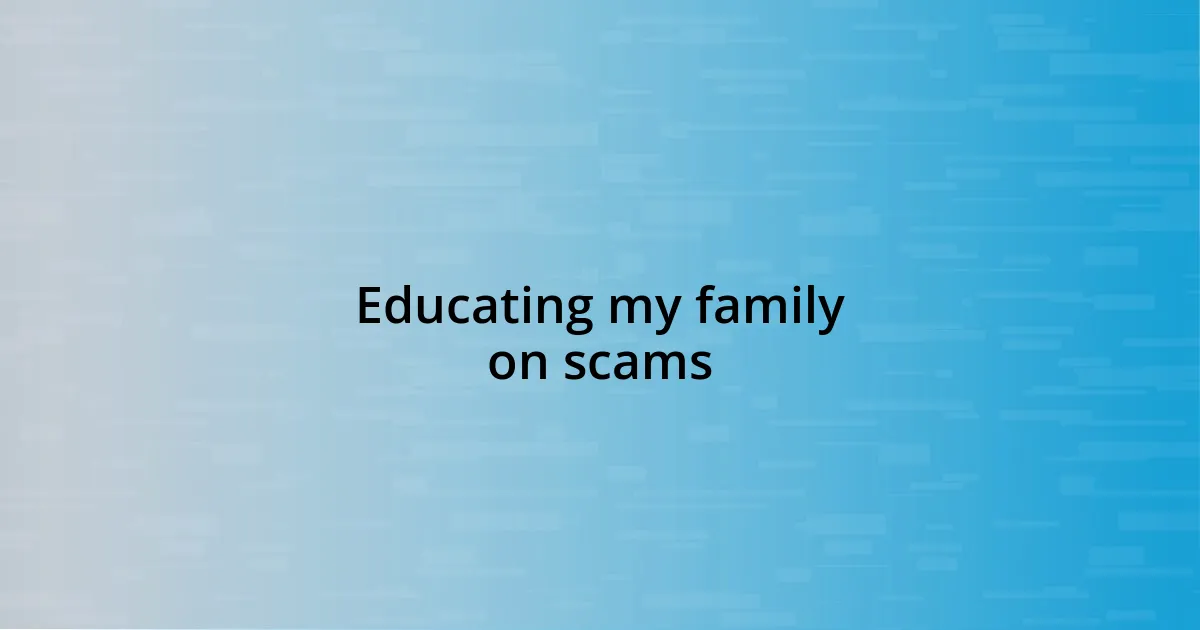
Educating my family on scams
Educating my family about scams is a priority for me. I often gather everyone for an informal family chat where we share stories of scams we’ve encountered. It’s not just about the scams themselves; it’s about the feelings of vulnerability and frustration that come with them. I remember a discussion with my teenager about an online offer he nearly fell for. After talking about it openly, he realized how easily he could have been deceived.
To effectively teach my family, I focus on key elements that can help them stay informed. Here are some practical strategies I’ve found useful:
- Share Personal Experiences: Relate your own encounters with scams to make the topic more relatable.
- Discuss Real-Life Examples: Highlight current events or news articles related to scams to keep the information current.
- Role-Play Scenarios: Practice identifying scams through role-playing to prepare them for real-life situations.
- Create a Resource List: Compile a list of trusted websites and hotlines they can refer to for information and reporting.
By sharing and discussing these insights, I believe we can better protect each other and build a more scam-aware family unit.
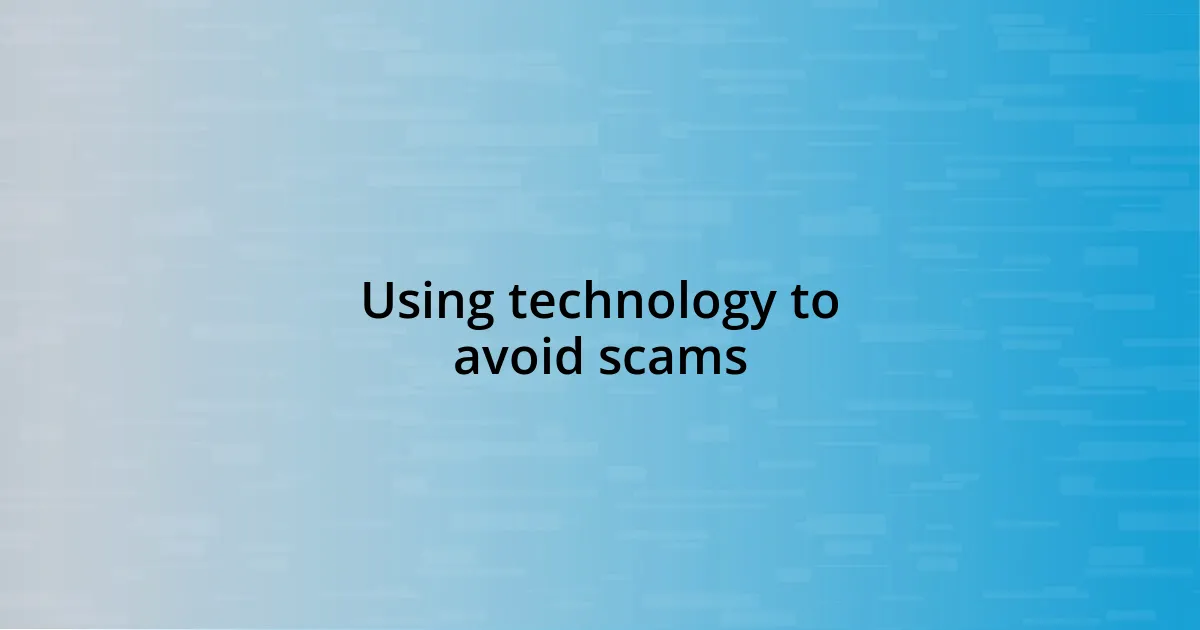
Using technology to avoid scams
Using technology to avoid scams has become essential in our digitally connected world. I’ve turned to a few handy tools that not only safeguard my family but also give me peace of mind. For instance, I set up alerts on my bank accounts—it’s always nice to receive notifications for any transaction, large or small. There was a time when I got an alert for an unusual purchase that I hadn’t made. It was reassuring to act quickly, stopping a potential scam in its tracks.
Installing quality security software on all our devices has also been a game changer. I can’t stress enough how important it is to keep these systems updated. Imagine this: my child accidentally clicked on a suspicious link while browsing, but thanks to our software, an alert popped up, preventing any harm. Without that layer of protection, things could have taken a nasty turn. It’s an easy way for me to ensure they’re shielded from threats online.
I also leverage social media privacy settings to control who can contact us. Has anyone else felt that twinge of anxiety when receiving messages from random users? I can’t be the only one! I remember a time when I received a friend request from someone who seemed too familiar yet was a complete stranger. Adjusting my settings to limit unsolicited messages made a significant difference in managing who gets access to my family’s online lives. It’s fascinating how a few tweaks can dramatically enhance our security.
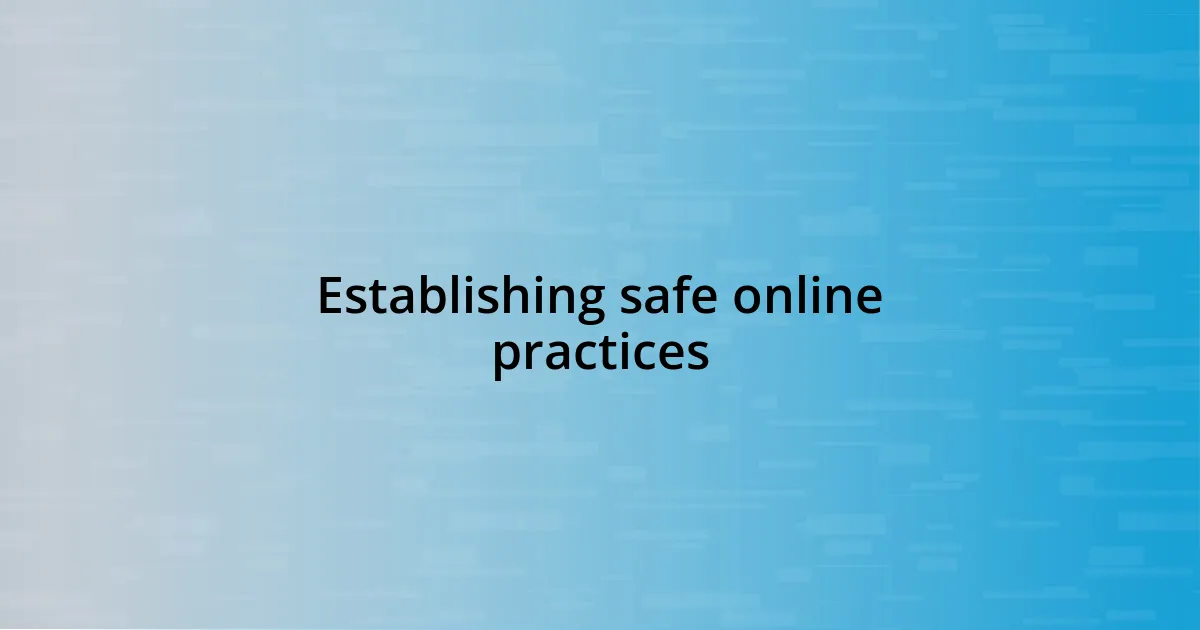
Establishing safe online practices
Establishing safe online practices is something I take seriously, especially when it comes to my family’s security. One effective strategy I’ve implemented is creating strong passwords. I remember the day I set my kids down and shared the importance of not using easily guessable passwords like “123456” or “password.” We had a laugh when we realized how many websites we’ve encountered that still recommend weak passwords. Now, we use a password manager, and I genuinely feel more at ease knowing that our accounts are better protected.
Another practice that resonates with me is the importance of teaching my kids to verify information. I once overheard my daughter sharing a sensational social media post with her friends, convinced it was true. My heart sank, and I gently reminded her of the significance of checking the source first. We made it a routine to pause before forwarding anything online, asking ourselves: “Is this trustworthy?” This simple habit has not only made us more critical consumers of information but has also opened up conversations about the importance of digital literacy.
Finally, I’m a big proponent of regular discussions about online behaviors. We have “tech check-in” sessions where we talk about our online experiences—both positive and negative. This allows us to share concerns and learn from each other’s experiences. Just last week, my son shared how he avoided a sketchy online purchase by following a gut feeling. This practice sticks out to me because it reinforces the idea that trusting your instincts can be the first line of defense in avoiding scams. Plus, it helps my family feel more connected and less alone in navigating the online landscape.
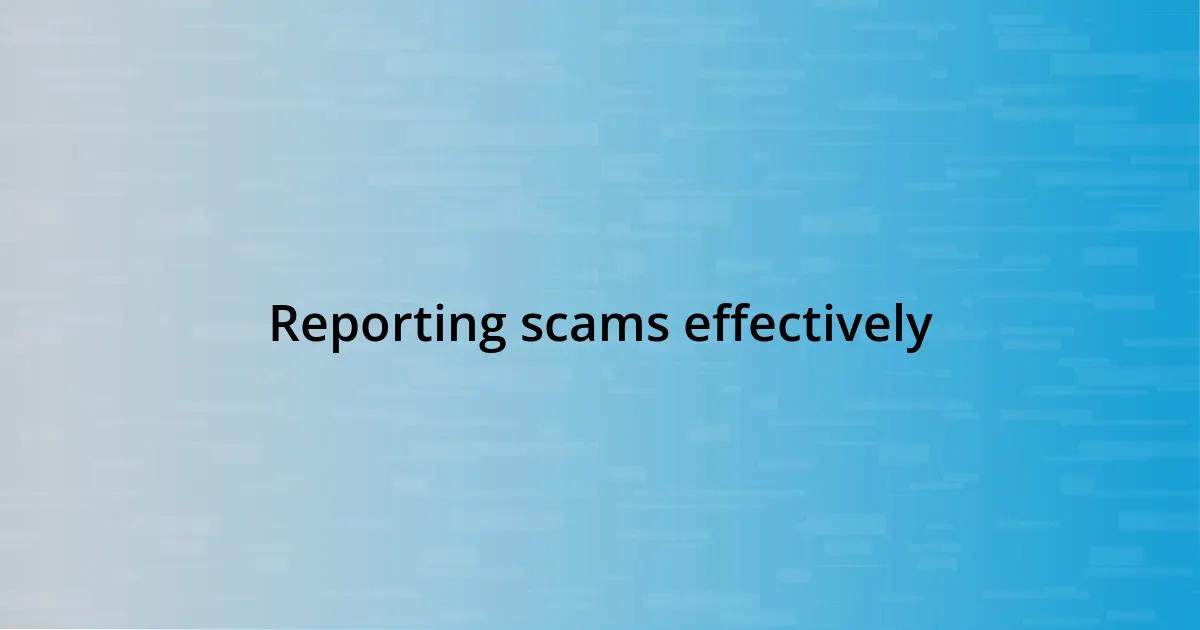
Reporting scams effectively
Reporting scams effectively is crucial for protecting not just my family but also others who might fall victim. I recall a time when I received a phishing email that seemed legitimate. After realizing it was a scam, I quickly reported it through my email provider’s reporting feature. That experience taught me how fast and straightforward it is to alert others about potential threats, ensuring that similar scams get flagged early on.
I’ve also connected with local consumer protection agencies. After a friend’s unfortunate encounter with a scammer, I felt compelled to share the details with these agencies. It was eye-opening to realize how many others had faced the same issue. Reporting to these organizations not only helps create awareness but also contributes to broader efforts to track and combat scams. Isn’t it empowering to know that a simple report can lead to significant community protection?
When reporting, I always ensure to include as much detail as possible, like screenshots or specific descriptions. I remember the first time I took this approach; it felt rewarding to provide comprehensive information that could assist in investigations. Wouldn’t you agree that the more detailed your report, the better the chance of stopping these criminals? It’s all about uniting our voices against the tactics used by scammers, creating a safer environment for everyone.
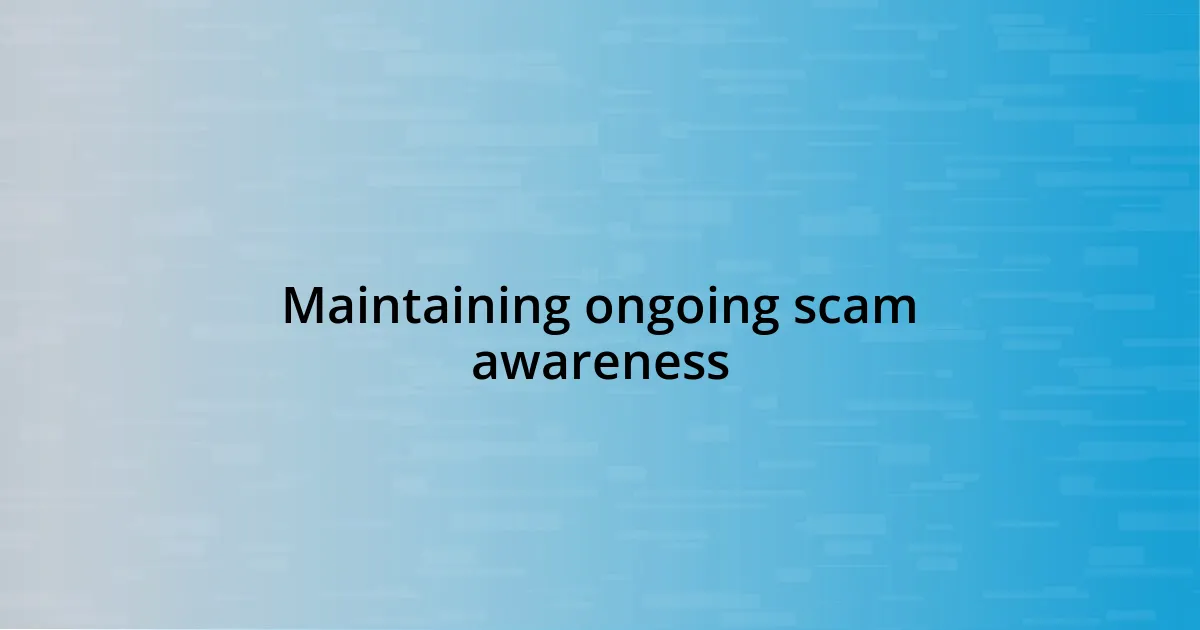
Maintaining ongoing scam awareness
Maintaining ongoing awareness of scams is essential in our fast-paced digital world. I often take the time to browse news articles or online resources that focus on new scams. Just last week, I stumbled upon a report about a recent phone scam targeting seniors. It made me appreciate the importance of being informed and sharing that information with my family. How can we protect ourselves if we don’t know what we’re up against?
I also find that regular family meetings to discuss potential scams strengthens our collective defense. I remember one meeting when we role-played scenarios involving text message scams. My son really got into character, even imitating a scammer’s voice! Not only was it entertaining, but it also helped us recognize red flags together. This kind of collaborative learning fosters a more vigilant mindset; it made us all wonder how many of these situations go unnoticed every day.
Additionally, I believe in the power of community awareness. I’ve joined local online groups where members regularly share their encounters with scams and fraud attempts. This sense of camaraderie makes me feel part of a larger mission. Isn’t it reassuring to know that we’re not alone in this struggle? By sharing experiences, we learn from one another and stay ahead of those who aim to deceive us. We’re building a collective shield of knowledge, which makes it far less likely that any of us will fall victim.

